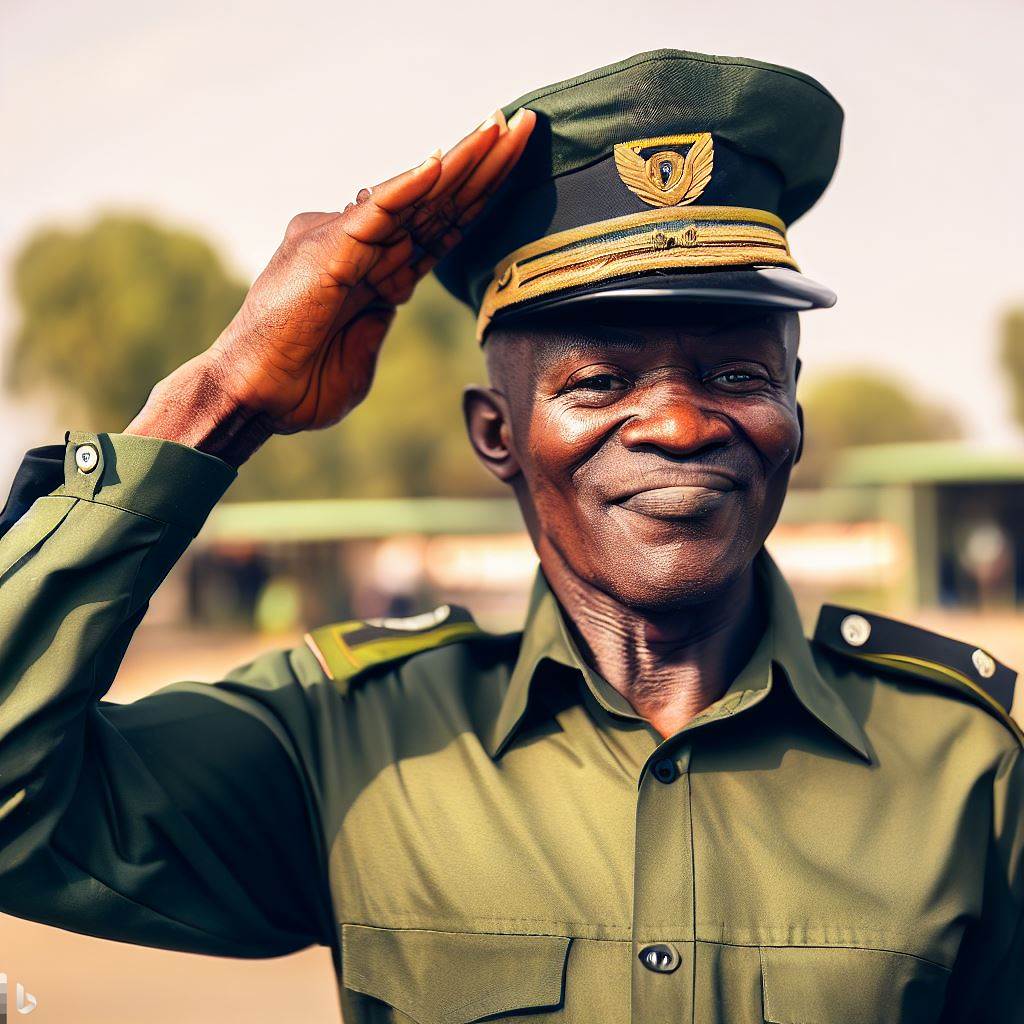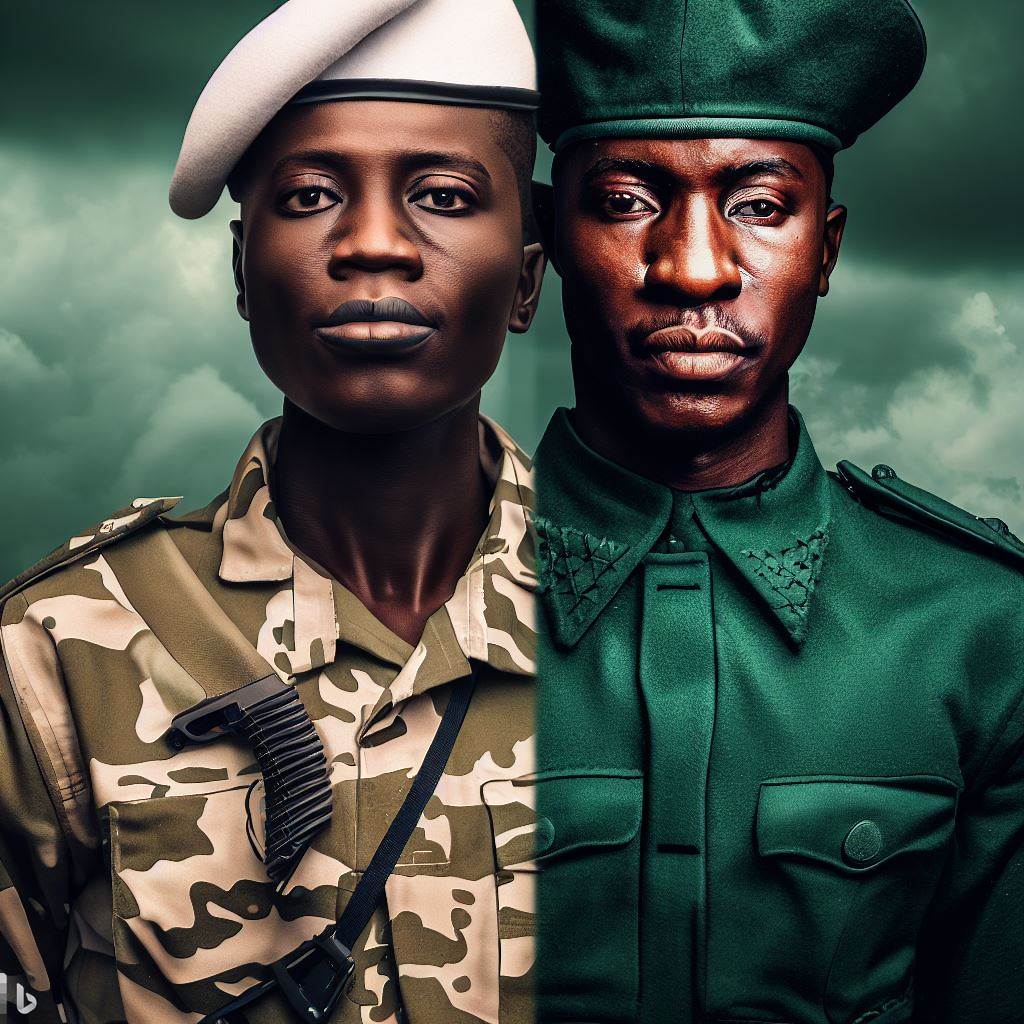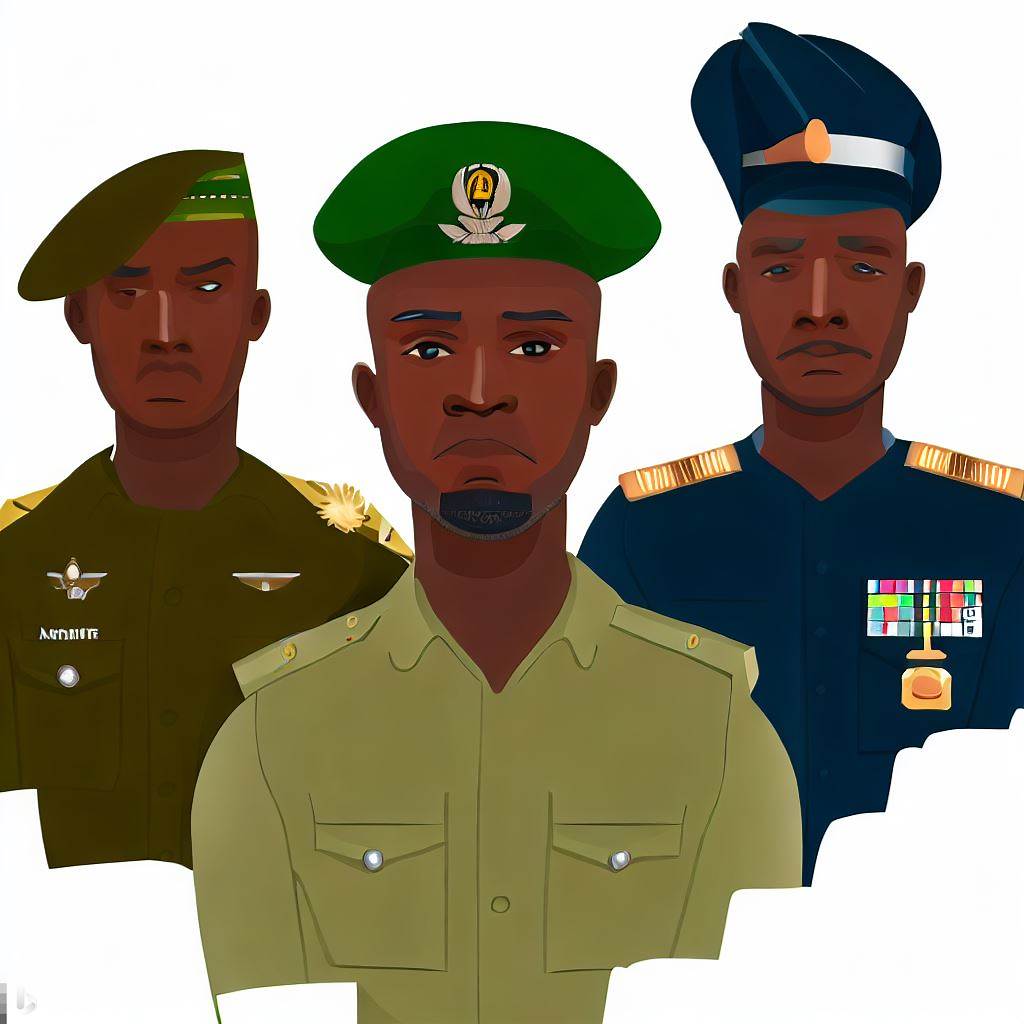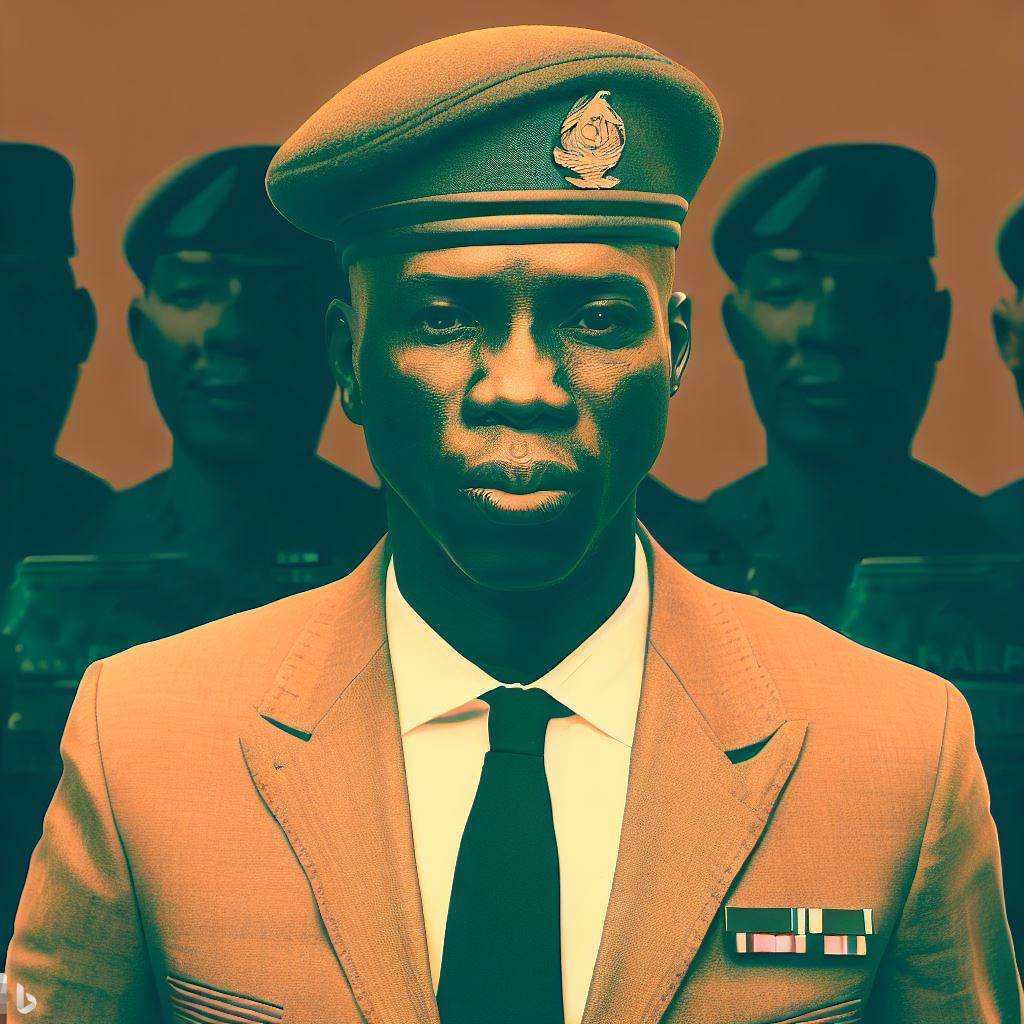Introduction
Nigeria’s political landscape is one of the most complex in Africa, with a history of military coups, political crises, and ethnic tensions.
Understanding the country’s political landscape is crucial, as it affects every aspect of life in Nigeria, from the economy to security and governance.
As one of the largest economies in Africa, Nigeria’s political landscape plays a crucial role in determining the country’s future.
With a population of over 200 million people, Nigeria is a diverse nation with over 250 different ethnic groups.
The country operates under a federal system of government, with power divided between the central government and 36 states.
The federal government is responsible for issues such as foreign policy, defence, and the economy, while state governments oversee local affairs.
Tensions between different ethnic, religious, and regional groups have often led to political violence and instability in Nigeria.
However, Nigeria has also made progress towards consolidating democracy since the military regime ended in 1999.
In essence, understanding Nigeria’s political landscape is vital for anyone wishing to comprehend the country’s current state and future prospects.
It will help stakeholders to navigate the complexities of the political arena, develop informed policy recommendations, and contribute to the progress of Nigeria towards stability, development, and good governance.
Read: Promotion Structure within the Nigerian Military
Historical Context
In the 19th century, European powers colonized Nigeria, with Britain taking control in the late 1800s. Nigeria gained independence in 1960 and became a republic in 1963.
The early years of independence were marked by instability and political turmoil, leading to a military coup in 1966 and years of military rule until 1999.
During military rule, Nigeria faced corruption, human rights abuses, and economic decline.
In 1999, the transition to democracy began with Olusegun Obasanjo’s election as president.
Despite successful elections, Nigeria still grapples with challenges like corruption, concentration of political power, ethnic, and religious divisions.
Nigeria, with its large population and vast oil reserves, remains an important player in Africa and globally.
Understanding Nigeria’s historical context is crucial to comprehend its current political landscape.
Colonialism, democratic transition, and a complex history shape Nigeria’s challenges and aspirations for a stable and prosperous future.
Major Political Parties
Nigeria operates a multi-party system with several registered political parties.
However, only two political parties have dominated Nigerian politics since the return of democratic rule in 1999: the People’s Democratic Party (PDP) and the All Progressives Congress (APC). Here is a look at these two major political parties in Nigeria:
People’s Democratic Party (PDP)
The People’s Democratic Party (PDP) is one of the largest political parties in Nigeria, and it has been in power for a significant portion of Nigeria’s post-independence period.
The party was founded in 1998 in preparation for the transition from military to democratic rule. The PDP was the ruling party in Nigeria from 1999-2015 before it was defeated by the opposition All Progressives Congress (APC) in the 2015 general election.
The PDP is known for its strong grassroots support, especially in the South-South, South-East, and Middle Belt regions.
It is also the party of choice for many minority groups in Nigeria. The party’s ideology is based on social democracy, which emphasizes democracy, social justice, and poverty eradication.
Some of the notable achievements of the PDP during its 16 years of ruling Nigeria include the establishment of the Universal Basic Education program in 1999, which provides free and compulsory basic education for all Nigerian children; the establishment of the National Health Insurance Scheme in 2005, which provides affordable and accessible healthcare to all Nigerian citizens; and the rebasing of the Nigerian economy in 2014, which led to Nigeria becoming the largest economy in Africa.
All Progressives Congress (APC)
The All Progressives Congress (APC) is the current ruling party in Nigeria, having defeated the People’s Democratic Party (PDP) in the 2015 general election.
The party was formed in 2013 as a merger of four opposition parties: the Action Congress of Nigeria (ACN), Congress for Progressive Change (CPC), All Nigeria Peoples Party (ANPP), and a faction of the All Progressives Grand Alliance (APGA).
The APC is known for its strong support in the North-West, North-Central, and South-West regions of Nigeria.
The party’s ideology is based on progressivism, which emphasizes good governance, accountability, and transparency. The APC’s slogan is “Change,” which was used to create a sense of urgency amongst Nigerians who were fed up with the corruption and impunity that had characterized the PDP’s 16 years in power.
Some of the notable achievements of the APC since taking over power in 2015 include the implementation of a treasury single account, which has significantly reduced the level of corruption in Nigeria’s public finances; the establishment of the Presidential Enabling Business Environment Council (PEBEC), which aims to make Nigeria one of the top 100 countries in the World Bank’s Ease of Doing Business rankings; and the successful implementation of the National Social Investment Programme (NSIP), which provides social safety nets for Nigeria’s poorest citizens.
Other Relevant Political Parties
Aside from the PDP and the APC, there are several other registered political parties in Nigeria, some of which have representation at the national and state levels. Some of these political parties include:
- Labour Party (LP)
- Alliance for Democracy (AD)
- Alliance for New Nigeria (ANN)
- Peoples Redemption Party (PRP)
- Social Democratic Party (SDP)
- Young Progressive Party (YPP)
While these other political parties do not have the same level of support as the PDP and APC, they play an important role in Nigeria’s democracy by providing alternative viewpoints and choices for voters.
Most importantly, while Nigeria has several registered political parties, the People’s Democratic Party (PDP) and the All Progressives Congress (APC) have dominated Nigerian politics since the return of democratic rule in 1999.
These two major political parties have different ideologies and enjoy support in different regions of Nigeria. The other registered political parties also play a significant role in Nigeria’s democracy by providing alternative viewpoints and choices for voters.
Read: The Nigerian Government: Achievements and Pitfalls
Key Political Figures in Nigeria
President Muhammadu Buhari
President Muhammadu Buhari is the current president of Nigeria. He was elected into office in 2015, after defeating then-incumbent President Goodluck Jonathan in the presidential election.
Buhari, a former military ruler, had previously contested for the presidency three times before finally winning. His presidency has been focused on fighting corruption, improving national security, and boosting the economy.
However, his administration has faced criticism for its handling of the economy and the ongoing security challenges in the country.
Vice President Yemi Osinbajo
Yemi Osinbajo is the current vice president of Nigeria. He was appointed as running mate to President Buhari in the 2015 presidential election and was re-elected in 2019. Osinbajo, a lawyer and professor of law, has been lauded for his efforts in promoting socio-economic development in Nigeria.
He has been particularly involved in the administration’s efforts to improve agriculture, power and infrastructure.
State Governors
State governors, elected for a four-year term, lead Nigeria’s 36 states and the Federal Capital Territory.
These governors are responsible for the development and administration of their respective states. Some of the most prominent state governors in Nigeria include Lagos State Governor Babajide Sanwo-Olu, Kaduna State Governor Nasir El-Rufai, and Edo State Governor Godwin Obaseki.
Legislative Leaders
The legislative arm of government in Nigeria comprises the Senate and the House of Representatives.
The Senate has a Senate President, Ahmed Lawan, elected in June 2019, and the House of Representatives has a Speaker, Femi Gbajabiamila.
Both leaders have played key roles in shaping the legislative agenda of the current administration.
Key Opposition Figures
The All Progressives Congress (APC) ousted the People’s Democratic Party (PDP) in 2015 after ruling for 16 years.
Some of the key opposition figures include former Vice President Atiku Abubakar, former Senate President Bukola Saraki, and governorship candidate Peter Obi.
These opposition figures have been critical of the current administration’s policies and have called for greater accountability and transparency in governance.
A diverse group of leaders shapes Nigeria’s political landscape, responsible for steering the country towards socio-economic development.
While there have been some challenges and criticisms, their contributions have significantly impacted the nation’s progress.
As Nigeria continues to strive towards a better future, it is essential that its political leaders work together to ensure that the country’s democracy continues to thrive.
Read: Duties and Responsibilities of Nigerian Military Officers
Socio-Political Issues
As a diverse country with over 250 ethnic groups, Nigeria has faced numerous socio-political issues that have hindered its progress and development. Some of these issues include:
Corruption
- Corruption has been a major problem in Nigeria and has affected various sectors of the country, including politics, business, and government.
- It has led to a lack of accountability, transparency, and trust among Nigerians, which has resulted in a weak governance structure.
- The country’s efforts to counter corruption have been ineffective, as corrupt practices continue to thrive.
- Nigerians must demand more accountability from their leaders and strive for a corruption-free society.
Ethnic and Religious Tensions
- Nigeria is home to various ethnic groups, and this has led to a divide between different communities.
- Political propaganda, economic competition, and cultural differences fuel ethnic and religious tensions.
- The country has experienced numerous inter-ethnic and religious conflicts, resulting in loss of lives, damage to property, and displacement of people.
- The government must work towards fostering unity and creating equal opportunities for all Nigerians, regardless of their ethnic or religious background.
Poverty and Inequality
- Nigeria ranks as one of the poorest countries globally, with over 40% of its population living below the poverty line.
- There is a growing wealth gap between the rich and poor, which has led to inequality and social unrest.
- The government must develop policies that promote inclusive economic growth and provide opportunities for all Nigerians to improve their living standards.
- Make efforts to eradicate extreme poverty and reduce inequality in all sectors of the economy.
Education and Healthcare
- The education and healthcare sectors have been poorly managed in Nigeria.
- Limited access to quality education and healthcare persists, especially in rural areas with inadequate infrastructure.
- Poor funding, inadequate facilities, and a lack of qualified personnel have contributed to the poor state of these sectors.
- The government must invest more in these sectors to provide accessible and affordable education and healthcare for all Nigerians.
Essentially, Nigeria faces numerous socio-political issues that have impeded its development and progress.
Addressing these challenges requires a collective effort from all Nigerians, including the government, civil society groups, and the private sector. By working together, the country can overcome these issues and achieve sustainable development.
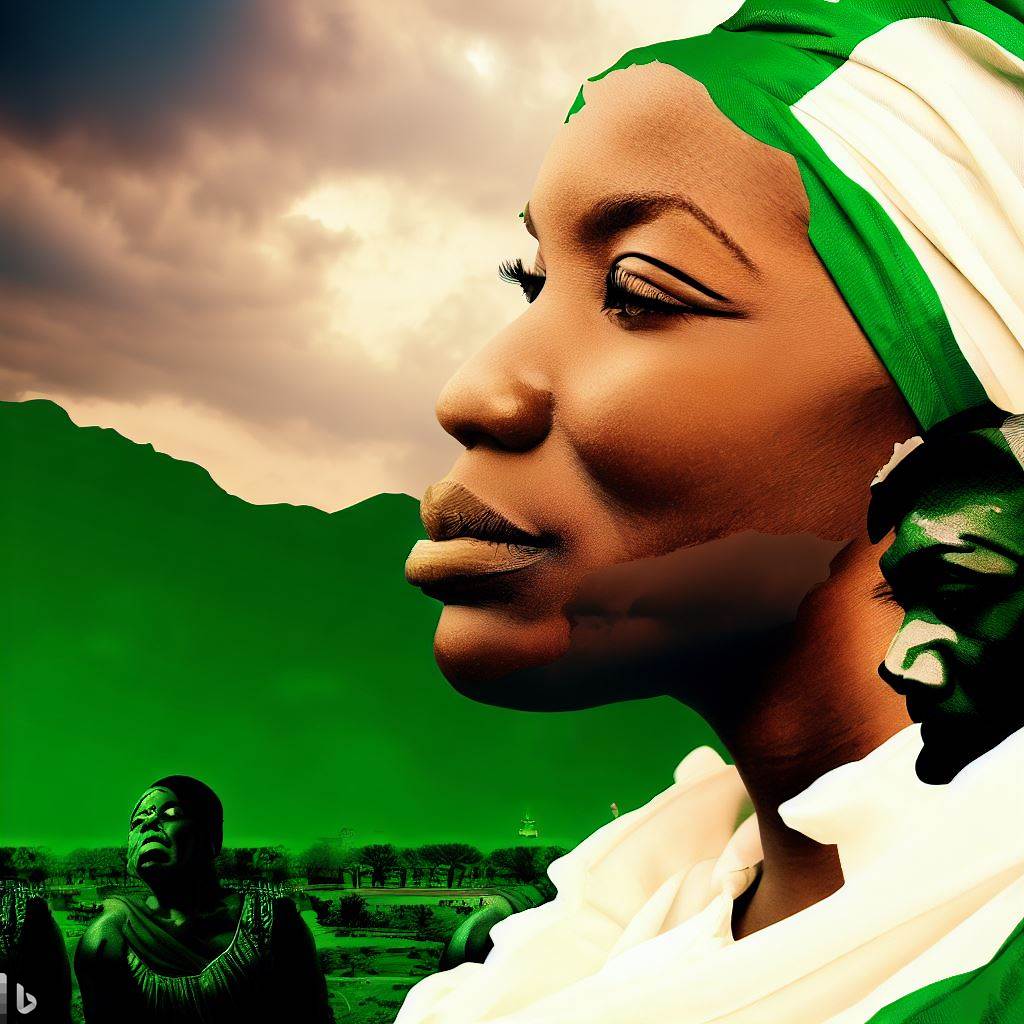
Elections and Voting Process in Nigeria
Nigeria, the most populous country in Africa, has a complex electoral process. Here’s an overview of the electoral process, voter registration, eligibility, and voting patterns:
Overview of the Electoral Process
- The Independent National Electoral Commission (INEC) is the body responsible for conducting elections in Nigeria.
- Elections are held every four years, with the last Presidential election taking place in 2019.
- The electoral process includes registration of political parties, nomination of candidates, and campaigning.
- In the Presidential election, the candidate with the highest votes in the first round and at least 25% in two-thirds of Nigeria’s 36 states wins.
- Governorship and State Assembly elections follow a similar process.
Voter Registration and Eligibility
- Voter registration is done by INEC, and eligible voters must be Nigerian citizens who are 18 years or older.
- INEC periodically conducts voter registration exercises prior to elections to give all qualified persons the opportunity to register.
- Registered voters are issued a voter’s card, which they present during elections.
- A voter’s card allows the holder to vote in the polling unit where they registered.
Voting Patterns and Trends
- Voting patterns in Nigeria are often influenced by factors such as ethnicity, religion, and geography.
- Political affiliations are often based on ethnic and religious allegiances.
- The North-South divide in Nigeria also plays a pivotal role in determining voting patterns.
- Voters in the North tend to vote for Northern candidates while those in the South often vote for Southern candidates.
- The youth vote has become an important constituency, with young people pushing for political decisions that align with their interests.
Therefore, the electoral process in Nigeria has come a long way since the return to democratic rule in 1999. However, challenges such as electoral violence, vote-buying, and vote-rigging still mar the process.
However, with the adoption of technology such as the use of card readers and the introduction of dedicated security agencies to monitor elections, the process is becoming more robust and transparent.
Read: The Impact of the Nigerian Government on Daily Life
Learn More: Leadership Skills: Being an Officer in Nigeria’s Army
Media and Freedom of Speech
Media is an important part of any democratic society, and Nigeria is no exception. The media landscape in Nigeria is diverse, with a range of newspapers, television stations, radio stations and online news sites.
Press freedom and journalistic independence are enshrined in Nigeria’s constitution. However, the reality is that journalists in Nigeria are often subject to harassment, intimidation and violence, particularly when they report on sensitive topics such as corruption and politics.
Censorship is also a concern in Nigeria, with the government frequently clamping down on media outlets that are critical of its actions. This has led to a self-censorship culture among journalists, as they try to avoid offending the government and risking their livelihoods.
Social media has emerged as a powerful tool in Nigeria, with citizen journalism becoming increasingly popular.
Twitter, Facebook, and Instagram empower Nigerians to share news, opinions, and images often censored by traditional media.
However, social media’s dark side includes spreading false information and inciting violence.
In 2019, the Nigerian government passed the controversial Anti-Social Media Bill in an attempt to regulate social media.
Overview of Media Landscape
- Nigeria has a diverse range of newspapers, television stations, radio stations and online news sites.
- Some of the major newspapers in Nigeria include ThisDay, Vanguard, The Guardian, Punch and Daily Trust.
- There are also numerous television stations in Nigeria, including Channels TV, NTA, Silverbird TV and AIT.
- The government-owned Federal Radio Corporation of Nigeria (FRCN) and the privately-owned Raypower FM dominate Nigeria’s radio landscape.
- The rise of online news sites has been a game-changer in Nigeria, with many popular sites such as Premium Times, Sahara Reporters and The Cable providing alternative news sources to traditional media.
Press Freedom and Censorship
- Press freedom and journalistic independence are enshrined in Nigeria’s constitution.
- However, journalists in Nigeria are often subject to harassment, intimidation and violence, particularly when reporting on sensitive topics such as corruption and politics.
- The Nigerian government frequently clamps down on media outlets that are critical of its actions, leading to a self-censorship culture among journalists.
- International media watchdogs such as Reporters Without Borders and the Committee to Protect Journalists have raised concerns about press freedom in Nigeria.
Social Media and Citizen Journalism
- In Nigeria, social media has become a powerful tool, enabling Nigerians to share uncensored news, opinions, and images.
- Platforms such as Twitter, Facebook and Instagram are popular in Nigeria, with many politicians, journalists and public figures using them to communicate with the public.
- Citizen journalism has become increasingly popular in Nigeria, with citizen reporters using their smartphones to document events and share news stories.
- However, social media has also been a platform for spreading false information and inciting violence, leading the Nigerian government to try and regulate it.
Conclusion
The political landscape of Nigeria is complex and constantly changing. It has been shaped by historical events, social and economic factors, and the actions of political leaders.
Despite the challenges that the country has faced, Nigeria has made significant progress in recent years towards building a more democratic society.
It is important for Nigerians to continue to engage in and participate in politics. Nigerians must vote, stay informed, and hold officials accountable to ensure their voices are heard and needs represented in government.
Ultimately, the future of Nigeria’s political landscape will depend on the actions of its citizens. With continued engagement and participation, Nigeria can reach its full potential as a democratic and prosperous nation.

